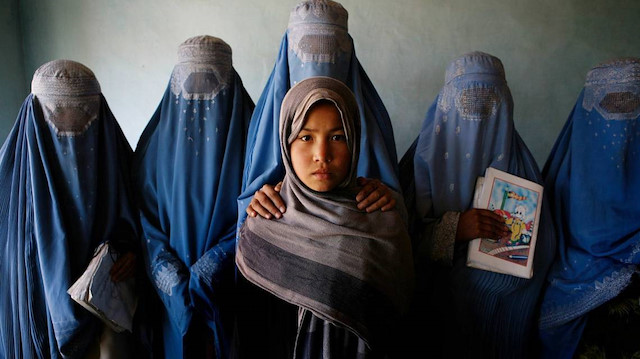
Renowned South Korean photojournalist’s work featured in Exodus Deja-vu, an exhibition that focuses on refugee crisis
"Empathy is key in telling stories through photographs," according to the award-winning photojournalist Jean Chung.
In an online interview by the Exodus Deja-vu project, she marked World Refugees Day, observed on June 20, in which she is featured with 11 photojournalists.
The South Korea-based photographer has worked extensively in women's camps in Uganda and gained international recognition with her series of photo-reportage in Afghanistan and Africa.
Exodus Déjà-vu is a project based on the idea that all photographs capture various individuals, moments, stories and situations. But on the other hand, even the photos of different conflict zones in different eras look the same, creating an impression of déjà-vu.
The project aims to bring attention to déjà-vu emotions, and to emphasize that problems refugees face all around the world are still continuing.
The project has garnered international acclaim since it was first held in 2016 and features the works of renowned photographers and photojournalists including Chung, Coskun Aral, Guillermo Arias, Yalda Moayeri and Sergey Ponomarev.
Anadolu Agency is the global communications partner for the event alongside other reputed organizations including the UN Refugee Agency and Amnesty International.
This year, due to the coronavirus outbreak, the exhibition was held online and was opened for viewing on June 20, World Refugees Day.
The photographers, who were interviewed online, talked about their featured work in the project and the significance of World Refugees Day for a photojournalist.
- Women's struggles through photography
The subject of refugee have been covered by many photographers, but as a woman from a former colony (South Korea), she wanted to focus on women's struggle among the refugee groups.
In 2006-2007, she lived in Afghanistan and did photo stories on women concerning maternal health, education and women's rights.
After she visited the Democratic Republic of Congo, since 2008, her work has focused on sexual violence against women.
She also did a photo story in Nigeria about sexual slavery, forced marriages and the consequences of armed conflict for women.
"I wanted to listen to women's stories; listen to them and make their stories heard," she said.
Good photojournalism should show the spirit of the time we live in and the reality of it, Chung added.
- 'Checking statistics, knowing the region important for creating good photography'
Chung covered women's camps in Uganda after South Sudan gained independence in 2011. The country fell into political turmoil and inter-ethnic violence two years later in 2013.
More than 500,000 people fled the country to neighboring Uganda, most of them women and children.
"You have to know what you are up against before going to a conflict zone to take photographs. You have to know the political context. But most importantly, you need to have empathy for people and look at the issues with compassion," she said.
This particular photo story in Uganda was to show the women's courage and trauma, she added.
- Project ongoing with more interviews
The first Exodus exhibition was held in 2016 in Kuala Lumpur, followed by showings in Bangkok, Chiang Mai, Ankara and Istanbul.
It was due to tour European and US cities in 2020, but those plans were shelved due to the coronavirus pandemic.
Photographers featured in the project will be interviewed daily on the project's Instagram page.
The exhibition can be viewed online at www.exodus-dejavu.com.
Hello, the comments you share on our site are a valuable resource for other users. Please respect other users and different opinions. Do not use rude, offensive, derogatory, or discriminatory language.
The floor is all yours.








